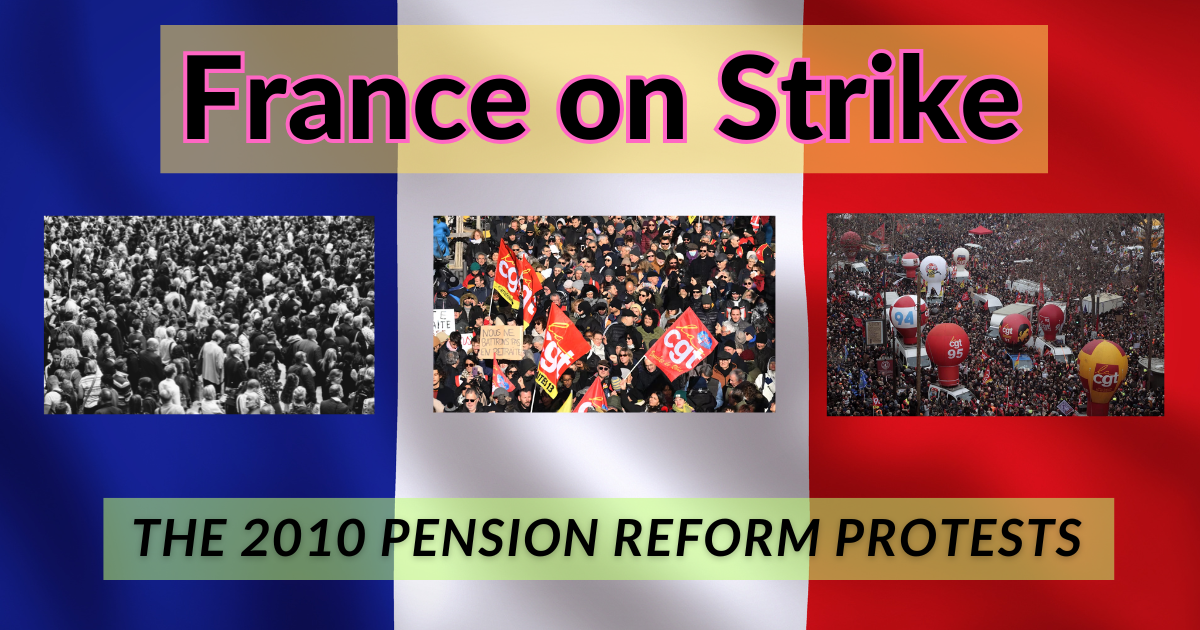France on Strike: The 2010 Pension Reform Protests. France has been hit by a strike due to planned pension reforms. The people from France, especially workers, took to the streets to protest against plans to raise the retirement age to 62. This change in the pension age made people angry, and they started a strike in 2010. This strike put huge pressure on the government. To know more about the topic “France on Strike: The 2010 Pension Reform Protests,” read the complete article.
France on Strike
According to the official records, around 1.1 million people took to the streets for the first strike day on January 19, according to official statistics, the biggest demonstrations since the last major round of pension reform under right-wing president Nicolas Sarkozy in 2010. In the most recent demonstration against President Emmanuel Macron’s reforms, the largest strike in France in decades shut down public transportation and reduced the number of hospital employees, teachers, and police officers on duty.

Protests have continued to roll across France as a new law declared by President Emmanuel Macron to raise the legal retirement age to 64, from 62, comes up for constitutional review amid persistent popular anger. Mr. Macron’s decision to force the change through the lower house of Parliament without a full vote caused a no-confidence vote, which the government barely survived. “We have reached the limit of the (concessions) that are possible,” Prime Minister Francois Fillion said.
The 2010 Pension Reform Protests
The 2010 pension reform protests in France were a series of general strikes and demonstrations that occurred in France throughout September and October 2010. The government wanted to raise the retirement age from 60 to 62 and the full state pension age from 65 to 67. The French president’s new plan aims to reward employees for each day worked, earning points that would later be transferred into future pension benefits. The 2010 protests and general strikes drew demonstrators in their millions and brought large parts of the country to a blockade.
In order to protest against the French government’s proposal to raise the normal retirement age for public pensions from 65 to 67 and to reduce pensions from age 60 to 62, which the Assembly nationale has approved, union members from the private and public sectors demonstrated in Bordeaux, Lille, Lyon, Marseille, Paris, Toulouse, Montpellier, and Strasbourg. Meanwhile, top government officials are being investigated for corruption, and temporary pre-crisis tax cuts are being maintained for the benefit of the wealthiest individuals and businesses.
Controversies in the Pension Plan
The move to a universal points-based pension system would eliminate the most beneficial pensions for a number of jobs that include from sailors to lawyers and even opera workers. While Mr. Macron has not proposed immediately increasing the age of retirement from 62, those retiring before 64 would receive a reduced pension based on the points earned. For example, someone retiring at 63 could receive 5% less, so unions fear it will mean having to work longer for a lower pension.
Public sector workers who do hard or dangerous jobs can also retire years earlier under the present system. But metro workers, for example, say reforms would force them to work longer by effectively taking away their right to retire early, agreed upon decades ago to compensate for having to work long hours underground.
Statements of Common People
“We shouldn’t think it’s still acceptable to stop working at 60 years—we should work until 65. Like other European countries, we have to work longer than 60 years,” insurance worker Frederic Deraed told the BBC’s Matthew Price in Lille. “It’s completely useless,” said housewife Nadine Gestas. “We can’t pay the pension and we can’t avoid increasing the age of retirement. Every country in Europe is raising the age of retirement.”
The government is acting as if we didn’t have a rich country, as if we didn’t have the money. The thing is, we do have the money, Oliver Sekai of the Confederation of Labour (CGT) said.
Jean-Luc Marino, a docker who joined a March in the port city of Marseille, said, “We are all in the same boat. It is already hard enough working at the age of 56 in the docks. To add yet more years to that means we will never get to enjoy our retirement.
Philippe Martinez, the head of the CGT labor union, said, “Sixty-four isn’t possible. Let them visit a textile factory floor, or a slaughterhouse, or the food-processing industry, and they will see what working conditions are like.”



